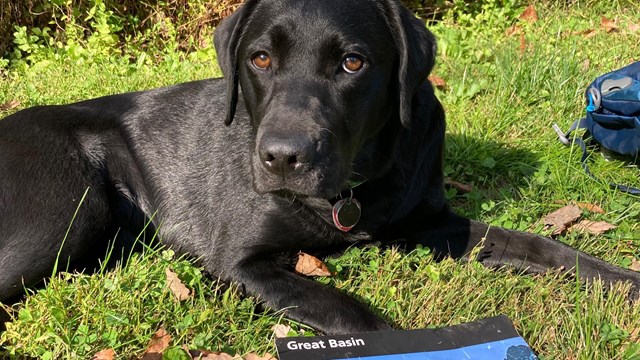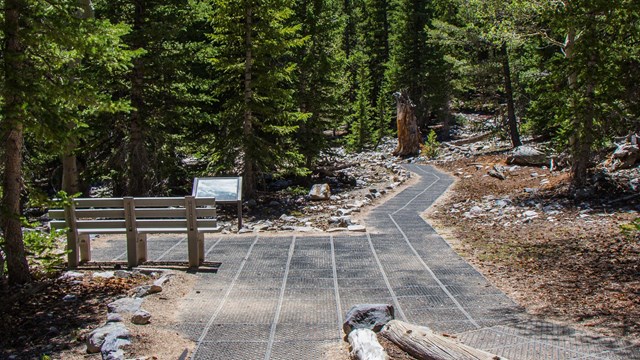|
Service animals are welcomed in all public areas of Great Basin National Park. This includes all visitor centers, campgrounds, park trails, and Lehman Caves. Interface between service animals and wildlife is possible, so precautions should be taken to ensure a safe visit. What is a service animal?
Service Animals in Lehman CavesService animals are allowed inside Lehman Caves on a guided ranger tour. The path follows a tight, paved pathway through the publicly accessible areas of the cave. Service animals should be comfortable with tight passageways, thin staircases, and close proximity to other people. We are more than happy to accommodate different needs and abilities, and tour options are available which avoid stairs. Check our mobility accessibility page for more information. Service Animals in the BackcountryQualified Service Dogs are permitted in the backcountry, but travel with dogs in the backcountry is not without risks. Please be aware that having a service animal in the backcountry may put you at increased risk for confrontations with coyotes, mountain lions, and other wildlife. If you take a service animal with you in the backcountry keep it on a tight leash at all times and sleep with it in your tent at night. Your safety and the safety of your animal are not guaranteed in the backcountry. Where domestic animals and wildlife overlap there is a possibility of exchanging diseases between the two groups. Domestic dogs can introduce disease into wildlife habitats and the park’s canids (coyotes and foxes) are vulnerable to domestic diseases such as canine distemper, parvovirus, rabies, and mange. Likewise, it is possible for domestic dogs to acquire these diseases from wild animals. To further prevent the spread of disease:

Pets
Please know the pet regulations before you come. These regulations are for the safety of you, the pet, and the wildlife. 
Accessibility
Great Basin has some accessible trails, and campsites. Visitor Centers and restrooms within the park are accessible |
Last updated: August 12, 2023
